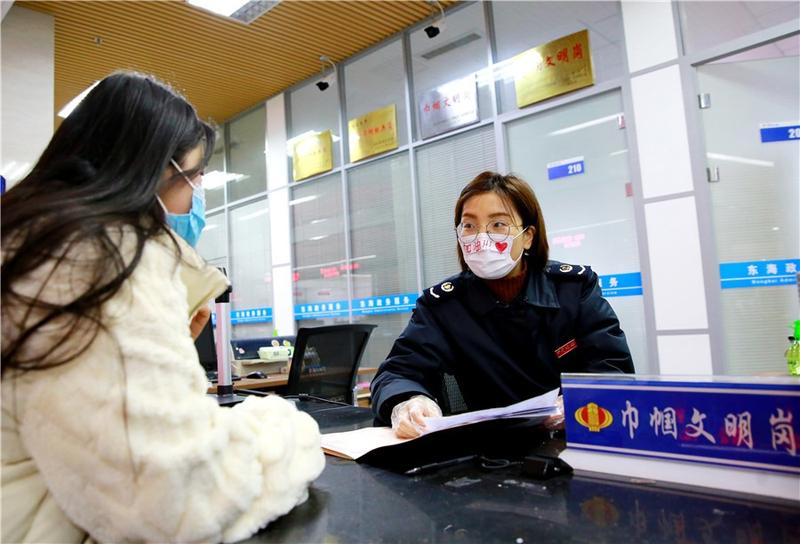 A counselor helps a taxpayer at a revenue office in Lianyungang, Jiangsu province. (SUN JUN / FOR CHINA DAILY)
A counselor helps a taxpayer at a revenue office in Lianyungang, Jiangsu province. (SUN JUN / FOR CHINA DAILY)
Tax authorities in China have published a document that outlines a set of policies to ease the tax burden on individuals and corporates during the novel coronavirus outbreak, including exemptions in individual income tax and value-added tax for certain taxpayers.
Cutting taxes and fees for enterprises affected by the epidemic, especially small-and medium-sized ones, reflects the government's decision to launch rescue measures related to expansionary fiscal policies, said a research note from consultancy firm PwC.
Policymakers in China should respond with further measures to cushion the growth impact
Robin Xing, Chief economist for China at Morgan Stanley
ALSO READ: Govt unveils policies to aid outbreak-hit SMEs
"It will also help enterprises maintain the necessary investment level. The contribution of investment to GDP growth is expected to increase this year due to the relatively small impact of the epidemic on investment and the government's expected increase in investment stimulus," reads the PwC report.
The State Taxation Administration has released 12 preferential tax policies for supporting coronavirus prevention work, related to epidemic prevention and treatment, material supply, public donation, and support for companies to restart production, a statement said.
Individual income tax on temporarily received subsidies and bonus pertaining to epidemic prevention work will be exempted. In addition, the individual income tax on medical protective equipment that staff get from companies will be zero, the STA said.
Companies, which provide key supplies for controlling the epidemic, will receive full refund of the tax credits for the incremental value-added tax. VAT on income from transportation and courier deliveries of epidemic control supplies will be canceled, according to the authorities.
To facilitate companies' recovery of production after the extended holiday, the document said that for companies facing difficulties, the maximum carryover period of the losses incurred this year should be extended to eight years.
The STA also confirmed that tariffs on imported goods necessary for direct epidemic control will be exempted so as to expand the scale of tariff-free donations from abroad.
Li Xuhong, a senior researcher with the Beijing National Accounting Institute, said that small-and medium-sized enterprises, which have short life cycles and insufficient capital, may not be strong enough to withstand the risks, and the impact of the epidemic will be more obvious in the services sector.
The fresh measures, along with the already issued tax and fee reduction policies, will further ease the current difficulties of small businesses, said Li.
There is still room to lower taxes and fees, according to the PwC report. The government can further reduce the starting point of individual income tax and boost consumption ability. With less income from taxes, the government can increase the fiscal deficit ratio to about 3 percent of the GDP, according to the report.
READ MORE: Local govts launch steps to help companies restart production
"Policymakers in China should respond with further measures to cushion the growth impact," said Robin Xing, the chief economist for China at Morgan Stanley. "Policy support is unlikely to be withdrawn quickly. Manufacturing output will likely be ramped up to above-normal levels to meet both end demand and inventory restocking needs once the disruption eases."
Last week, China decided to exempt additional tariffs on certain categories of goods imported from the United States for prevention and control of the novel coronavirus epidemic.
The new tariff policy was to increase imports of necessary materials to curb the spread of infections caused by the new virus. Tariffs that have already been collected will be refunded, according to the Customs Tariff Commission of the State Council.


